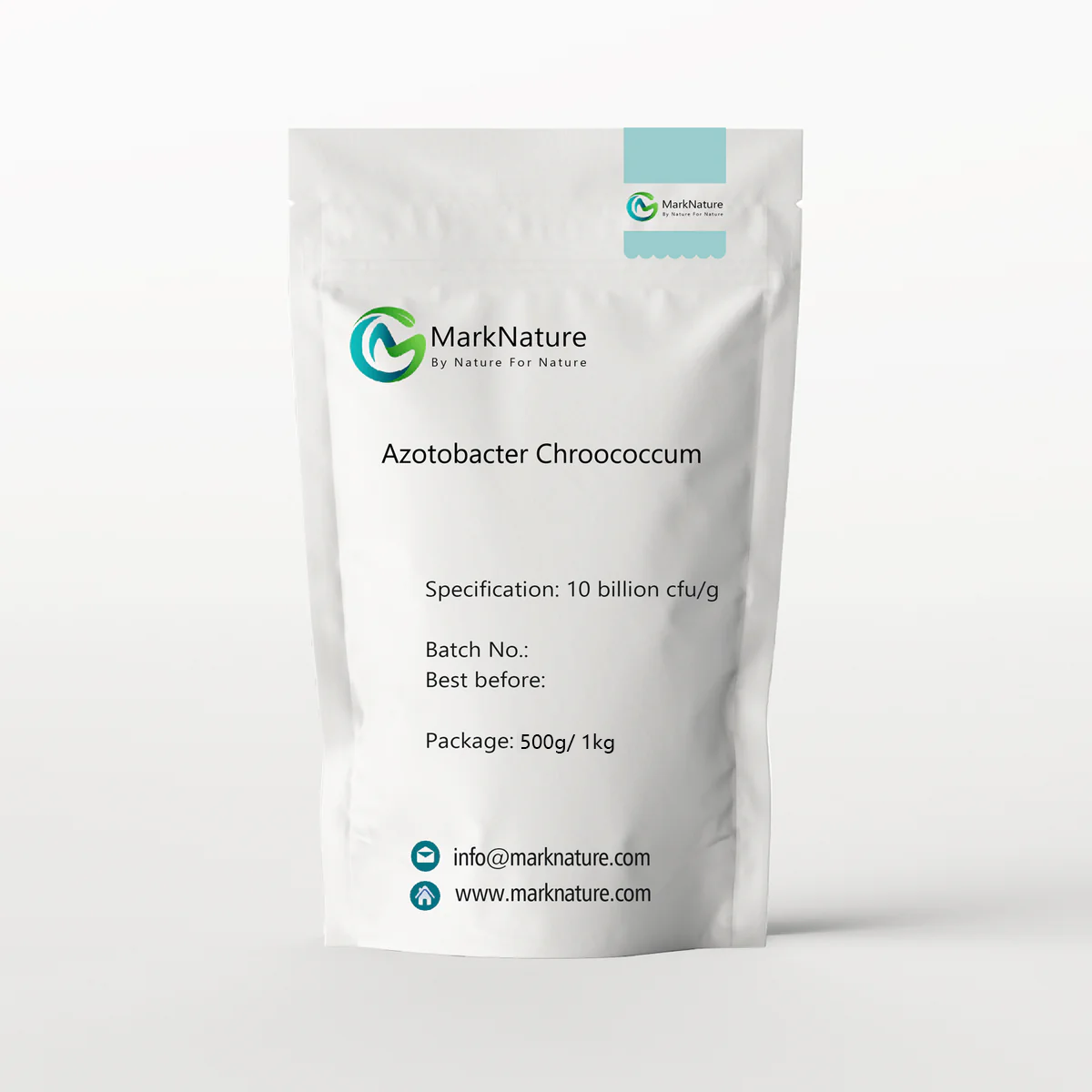Description
Azotobacter Chroococcum is a microbial-based product that contains a concentrated blend of non-pathogenic beneficial microorganisms. This product can be introduced directly during the seedling stage or added when transplanting young trees. These microorganisms have the ability to establish a symbiotic relationship with the plant, leading to the stimulation of root branching and an increase in the root's absorption surface.
The microbial population within Azotobacter Chroococcum plays a vital role in compensating for poor root growth. They achieve this by absorbing nutrients, particularly phosphorus (P) in the form of phosphates (PO4-) and potassium (K), from the soil and transferring these essential nutrients to the plant. This symbiotic relationship between the plant and fungi not only enhances plant growth but also provides the fungi with the necessary nutrients for their own growth.
Furthermore, the free-living microorganisms within this product establish a mutually beneficial relationship with the plant. They contribute to nitrogen fixation, produce plant growth-promoting substances, and offer protection against pathogenic soil organisms. This holistic approach promotes overall plant health and vitality.
>Specification:
Microbial Count: 10 billion CFU/gram
Appearance: Brown powder
Odor: Slight fermentation odor
Solubiltiy: Water soluble
>Benefits:
Azotobacter Chroococcum Powder contains a concentrated blend of non-pathogenic beneficial microorganisms capable of establishing a symbiotic relationship with plants. This symbiosis enhances plant growth while providing essential nutrients for fungal growth. The well-established microorganism growth can compensate for poor root development by absorbing nutrients from the soil, especially phosphorus (P) and potassium (K), and transferring them to the plant. In return, the plant supplies sugars and growth factors to the fungi.
The free-living microorganisms within the product form a mutually beneficial relationship with the plant, contributing to nitrogen fixation, the production of plant growth-promoting substances, and protection against pathogenic soil organisms. These microorganisms also aid in breaking down complex soil materials, making essential elements such as P and K readily available to plants.
>Advantages:
1. Supplement to Chemical Fertilizers: Environmentally friendly, made from organic substances, biodegradable, and free from harmful chemicals.
2. Cost Reduction: Reduces costs associated with chemical fertilizers, particularly nitrogen and phosphorus.
3. Increased Crop Yield: Enhances crop yield.
4. Chemical Replacement: Can replace chemical nitrogen and phosphorus fertilizers.
5. Stimulated Plant Growth: Stimulates plant growth by promoting root formation.
6. Biological Soil Activation: Activates the soil biologically by stimulating nitrogen fixation and interactions between plants and microorganisms.
7. Soil Restoration: Restores natural soil fertility through the production of organic material.
8. Improved Soil Quality: The production of organic material improves soil structure, texture, aeration, and water-holding capacity.
9. Drought Protection: Provides protection against drought and some soil-borne diseases through natural antimicrobial and anti-plant pathogen activities.
10. Natural Nutrient Production: Microorganisms naturally produce nitrogen, potassium, and phosphorus, reducing the need for additional soil amendments.
11. Versatile Application: Suitable for use on farmland or in gardens.
>Recommended Applications:
1. Add 0.25 kg to 1 ton of composting material.
2. Thoroughly mix using appropriate equipment and compost for 7 days.
3. Recommended dosage: 3~4 kg per hectare.
4. Application temperature range: 10°C~60°C.

